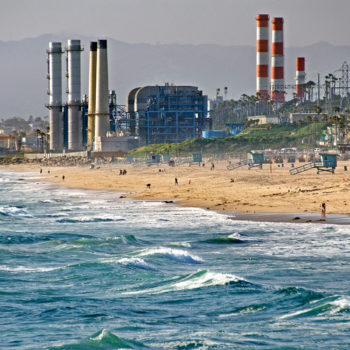|
|
Busy? Try the speed read.
Providing further insight into common perceptions about the costs of Fossil Fuels:
- “Rising energy costs demand more fossil fuel production”
- “Fewer regulations would lower fuel costs”
- “Weaning ourselves off fossil fuels is impractical”
What are the inherent costs of delaying our transition from conventional energy sources? Relying on fossil fuels as our primary energy source isn’t sustainable and inevitably just drives prices up even further as sources become more scarce.
The US Government spent $1 trillion in subsidising fossil fuels which ultimately hinders our progress to transition to cleaner energy sources, and relaxing corporate regulation comes at great risk to our environment as seen in the fracking industry.
However, our approach to everyday living and the small changes and decisions we make now can have huge impact and help us reduce our reliance conventional energy sources.
Dig deeper —> 7 min
Dispelling Common Myths About Fossil Fuel Costs
There’s a lot of conflicting information about how we power our lives. Although the overwhelming majority of scientists insist the only way to reach climate change goals is to switch to renewable energy as quickly as possible, governments continue to pour subsidies into oil and coal production. Do those in charge believe common myths about fossil fuel costs, or are they following who has the money now?
Although the public voice may seem quiet and ineffectual against the power structure machine, it can bring about change when enough people come together. Unfortunately, many citizens fall prey to propaganda.
What’s the reality? Let’s examine three frequent misconceptions and dispel these common myths about fossil fuel costs.

1. “Rising Energy Costs Demand More Fossil Fuel Production”
If you want to grab someone’s attention, hit them in their wallet. Consumers faced enormous inflation throughout 2022, making it harder to heat their homes and drive their cars. As a result, many supported politicians who promised to lower prices by ramping up fossil fuel production.
However, multiple factors influence what you pay at the pump, including company profits. Even the cost of the oil itself is controlled by market factors, such as the average daily open interest in fuel oil futures.
It’s more important than ever for the average person to understand market principles, such as scarcity. Oil and coal are not renewable resources, and ramping up production only means exhausting the existing reserves more quickly. What happens when you limit supply? Prices increase — meaning relying on increased fossil fuel consumption will only come back to bite the consumer in the wallet.
Transitioning to renewable energy is the only practical long-term solution to cutting costs. Understandably, the shift will take time. In the meantime, consumers can take better control of their home energy consumption by enacting these measures:
- Sealing air leaks: Weatherstripping and caulk go a long way and are simple to DIY.
- Adding insulation: Most of your home’s heat loss is through the roof and walls.
- Adjusting the thermostat: A 10-degree shift eight hours a day reduce energy bills by 10%.
- Reducing hot water use: Washing your clothes on the cold cycle is just as effective.
- Maintaining current equipment: A simple filter change can improve your HVAC efficiency considerably.
- Investing in sustainable replacements: When it’s time for new appliances, choose replacements with the highest Energy Star rating.
2. “Fewer Regulations Would Lower Fuel Costs”
Another common rhetorical trope politicians often rely on is that regulations add unnecessary costs to operations. Therefore, the quickest way to ease consumer pain is to repeal current restrictions, allowing fossil fuel companies to do as they please.
Doing so is akin to legalizing murder under the premise that most people aren’t inclined to kill, so why pay for police.
While it’s true that many companies behave ethically, some would gleefully do whatever it takes to increase their profit margin and please their shareholders. For example, the United States has abundant natural gas reserves, and proponents of fracking ignore the environmental devastation wreaked by such practices, which disproportionately fall on poor and disadvantaged communities in rural areas where companies can buy land cheaply.
The pursuit of short-term profit too often trumps long-term gain — and costs. For example, the World Health Organization estimates that 7 million people die annually from air pollution. These lives have an economic price. Approximately $8 billion a day goes toward treating these ailments. These expenditures will only increase with continued fossil fuel use, costing governments billions and, in the case of the United States, bankrupting countless consumers.

3. “Weaning Ourselves Off Fossil Fuels Is Impractical”
Perhaps the biggest common myth about fossil fuel costs is that weaning ourselves from them is a Herculean task. One small example of what feeds this mindset is that most people drive every day, but not everyone can afford to upgrade to an electric car.
These concerns are legitimate but built on myth. Modern humans have existed for over 100,000 years — the first evidence of coal use was not until 100 A.D. Certainly, no one is suggesting that today’s society goes back to living in the dark.
However, the end goal isn’t an overnight shift to renewables that will leave people scrambling but to gradually divest investments away from fossil fuels and redirect them to cleaner power sources. Like it or not, society revolves around finances, but continuing to dump nearly endless subsidies into a shrinking resource is a losing game. There comes a time when we must put our money where our proverbial mouths are or lose the ability to eat. Climate change contributes to the food crisis, driving up grocery prices with heating oil.
Society would benefit from playing more chess — to succeed at that game, you have to think of short-term defense and long-term strategy, projecting several moves ahead. However, unlike an unpredictable opponent, the danger climate change poses is well-known. Humans must now implement the right tactics to defend and overcome.
How our small choices help our progression?
There are a lot of myths about fossil fuel costs and reliance on them. Unfortunately, periods of economic insecurity make people focus on short-term solutions that act like a band-aid on a ruptured aorta. Actions like increasing fossil fuel subsidies may seem to stop the bleeding, but the patch is painfully temporary. The crisis will be severe once the dam breaks.
While an overnight move to renewable energy is impractical, shifting our mindsets and money toward long-term solutions is imperative for human survival. Continued pressure to change to renewable resources will preserve planetary health while ensuring costs stay low for all for generations to come.













No Comments